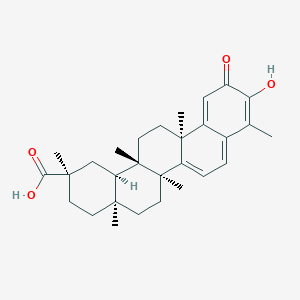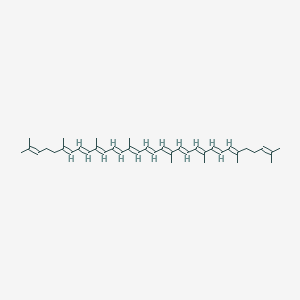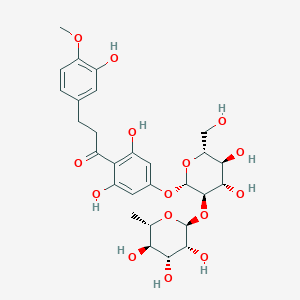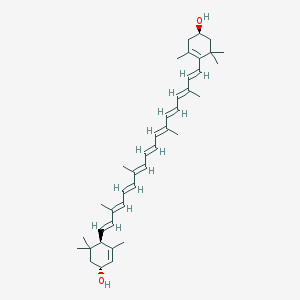Description
Celastrol is a naturally occurring triterpenoid molecule with anti-inflammatory, antioxidant, and anti-tumor activities. It is made from the roots of the Thunder God Vine (Tripterygium wilfordii Hook F.), a plant endemic to China and other East Asian countries. For ages, this plant has been utilized in traditional Chinese medicine to treat a variety of ailments, including rheumatoid arthritis, autoimmune diseases, and inflammatory disorders.
Celastrol is a pentacyclic triterpenoid compound that is extracted from the root of the Thunder God Vine, Tripterygium wilfordii, a plant that has been used in traditional Chinese medicine for centuries. Its potential therapeutic effects have garnered significant interest in the biomedical community, particularly for its anti-inflammatory and anti-cancer properties.
Function
Celastrol has been identified to possess a variety of biological functions, including:
- Anti-inflammatory: Celastrol has been shown to reduce inflammation by inhibiting the production of pro-inflammatory cytokines and mediators. It acts on several signaling pathways such as NF-κB, which is a key regulator of the inflammatory response.
- Anti-cancer: It can induce cell death in cancer cells by various mechanisms, including the induction of apoptosis (programmed cell death), inhibition of angiogenesis (the formation of new blood vessels that tumors need to grow), and by impairing cancer cell proliferation.
- Proteasome Inhibition: Celastrol also inhibits the proteasome, which is a complex that degrades damaged or unneeded proteins in cells. Proteasome inhibition is a mechanism exploited by certain anti-cancer drugs, as cancer cells are particularly sensitive to disruptions in proteostasis.
- Heat Shock Response Induction: It induces the heat shock response, which can help cells to cope with stress and can lead to the production of heat shock proteins that have a protective effect.
Application
Due to its functions, celastrol has potential applications in the treatment of several conditions:
- Rheumatoid Arthritis and Autoimmune Diseases: Given its anti-inflammatory effects, celastrol is being researched for use in autoimmune diseases like rheumatoid arthritis, where inflammation plays a significant role in disease pathology.
- Cancer Therapy: Celastrol’s anti-cancer properties make it a candidate for developing new cancer therapies, either used alone or in combination with other chemotherapeutic agents to increase their efficacy or to overcome drug resistance.
- Neurodegenerative Diseases: There is interest in its potential to treat neurodegenerative diseases like Parkinson’s and Alzheimer’s, as these conditions may be ameliorated by the anti-inflammatory and proteasome inhibition activities of celastrol.
Benefits
- Potential for New Therapeutic Approaches: Celastrol’s multi-faceted biological activities can be harnessed to develop novel therapeutic strategies for complex diseases that do not respond well to current treatments.
- Reduced Side Effects: There is the possibility that celastrol, as a natural product, might have fewer side effects compared to some synthetic drugs, although this has not been conclusively proven, and its toxicity profile is still under investigation.
- Synergistic Effects: When used in combination with other therapeutic agents, celastrol may enhance the overall therapeutic effect, potentially allowing for lower doses of each drug and reducing the likelihood of side effects.





